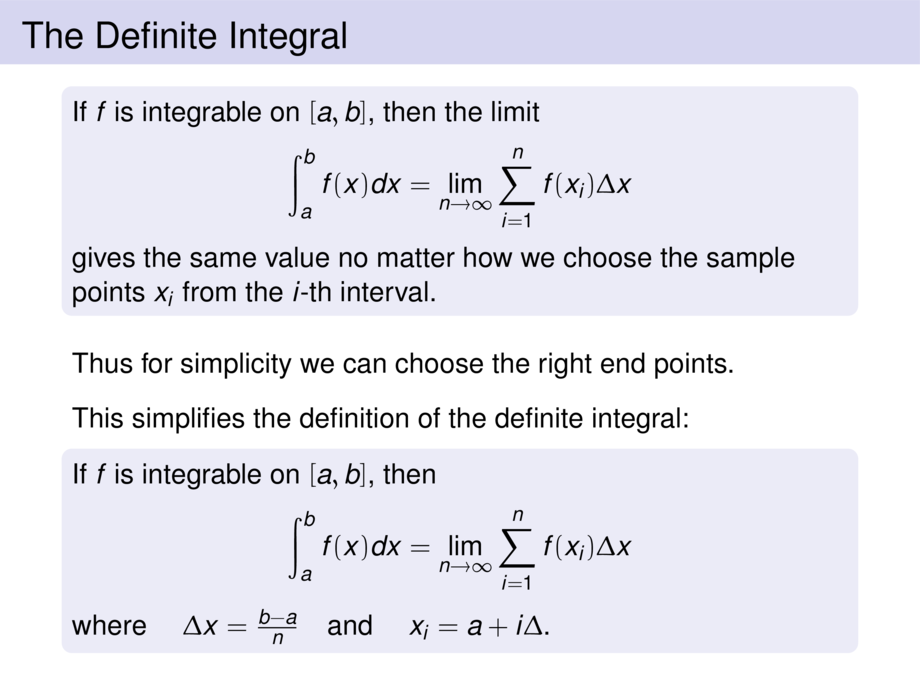



































































































42/111
\begin{frame}
\frametitle{The Definite Integral}
\begin{block}{}
If $f$ is integrable on $[a,b]$, then the limit
\begin{talign}
\int_{a}^{b} f(x)dx = \lim_{n\to \infty} \sum_{i = 1}^n f(x_i) \Delta x
\end{talign}
gives the same value no matter how we choose the sample points $x_i$
from the $i$-th interval.
\end{block}
\pause\bigskip
Thus for simplicity we can choose the right end points.
\pause\bigskip
This simplifies the definition of the definite integral:
\begin{block}{}
If $f$ is integrable on $[a,b]$, then
\begin{talign}
\int_{a}^{b} f(x)dx = \lim_{n\to \infty} \sum_{i = 1}^n f(x_i) \Delta x
\end{talign}
where \quad$\Delta x = \frac{b-a}{n}$\quad and \quad $x_i = a + i\Delta$.
\end{block}
\vspace{10cm}
\end{frame}

